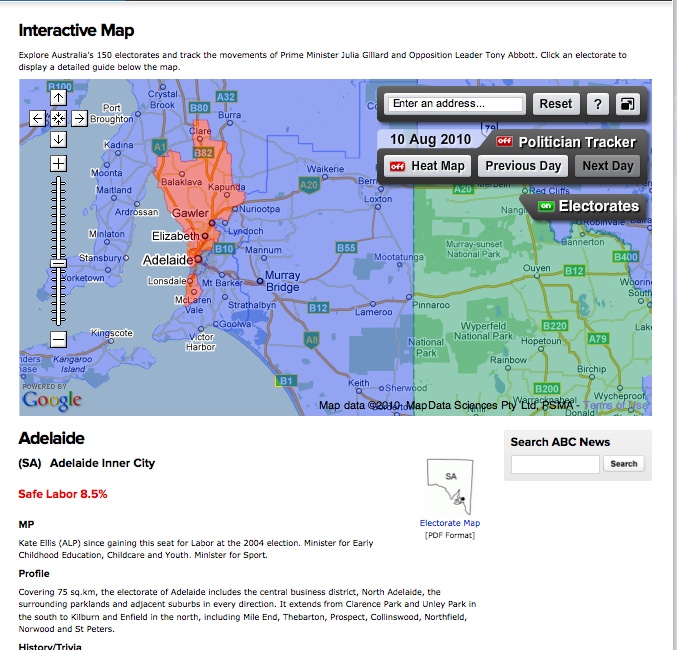As the count continues I’ll do occasional updates on various aspects of the election.
- Of course the big question is who will form government. I have no idea – looks like it could go either way. For now keep watching the counts in Hasluck, Brisbane, Denison, Corangamite and Dunkley. In particular Denison is a tough one, four way contests are tricky to predict!
- Many are pointing out that most people didn’t seem to want either Labor or Liberal to win and got they wanted. Note that the informal voters did not in any way achieve this – it’s the people who voted for other options.
- The AEC are recounting the seat the Grayndler as a two candidate preferred for ALP/Greens. I expect it will still be out of reach for the Greens since Labor’s Albanese has a very high primary but will be interesting to see how close it is. Note that the progressive count doesn’t mean too much right now, it’s booth by booth and they’ve only done 12/54 booths which aren’t necessarily representative of the whole electorate.
- The Age seemed to be trying to do a bit of a beat up about the Greens possibly supporting the Libs – all on the basis that Bob Brown said he’d talk to Tony Abbott. The Greens have made it perfectly clear that they will not form Government with the Coalition. They will however be sitting on the cross bench in the House of Reps, and will have balance of power in the senate – so what do people expect, should Bob Brown flat out refuse to talk to Tony Abbott? That would really be news. Regardless of whether Abbott turns out to be PM or opposition leader, it is entirely appropriate for the leader of the party holding balance in the Senate to meet with him, the Age have picked out one quote out of context and used it to make a sensationalist headline.
- The Senate is mostly settled though the last spot in Victoria is a tough call. Some people have been too quick to say that Fielding is out, he could still get in the last spot, though at the moment the ABC are predicting a win for the DLP! Not unprecedented, they picked up a seat in the Vic state parliament at the last election to give their first MP since the mid 70’s (when they had a NSW state MP who was elected when the sitting Liberal member failed to renominate in time – sometimes it’s been suggested he forgot but his side of the story is here.)
- I’ve seen quite a few comments around suggesting that it’s good now the Greens will get some scrutiny, and that people who voted for them will realise their error when finding out what the Greens are really like. For a start, the Greens voters tend to be well educated and probably are well aware of what the Greens policies are, but furthermore if there are voters out there with an unrealistic view of the Greens I think that it could well go the other way – if people believe the twisted version of the Greens often presented in the press (particularly Murdoch) then they’ll probably be pleasantly surprised when they learn more. It was interesting to view responses to the Vote-a-matic site that Fairfax did, where they put ALP, Lib & Green policies side by side and asked people to choose which one they agreed with – many seemed surprised at how much they agreed with the Greens (e.g. here). Another point is that after watching tonight’s Media Watch about the poor performance of the press in the campaign is that it’s not as if the major parties have had that much scrutiny of their policies as the press has focused on trivialities.
- Malcolm Turnbull seems to really be enjoying himself on Q&A tonight – I guess a 10% swing puts you in a good mood! Next to him is an empty chair representing Mark Arbib who has just gotten even less popular (if possible).


